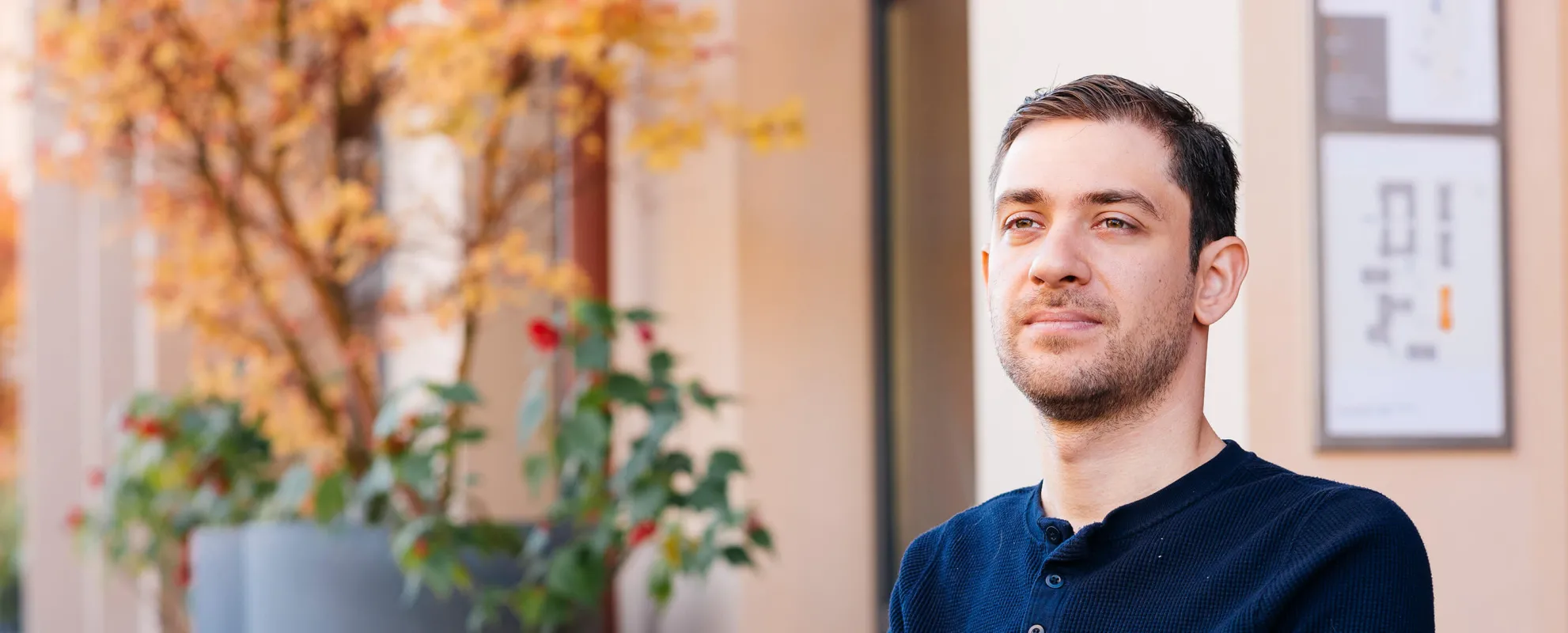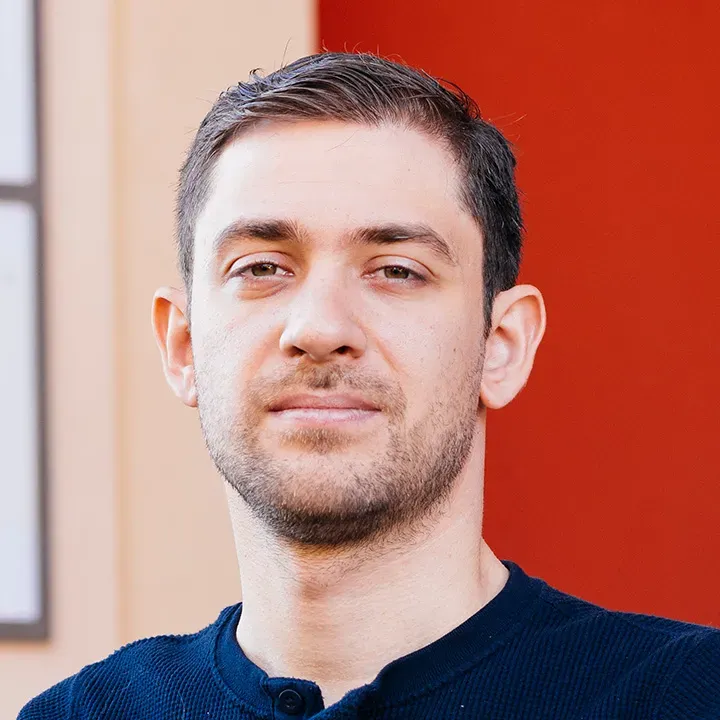Thirteen-year-old football player Jeff Butler was napping in the back seat of his family’s SUV after a game when a car accident changed his life. The Fort Wayne, Ind., native woke up to flashing emergency lights — and the harsh reality that a broken neck had left him paralyzed from the chest down.
“Twenty-four hours before that, the most important thing I was worried about was turning in my homework on time,” says Butler. “Then all of a sudden I have to worry about how I’m going to get around in the world, can I live independently, am I going to be able to function in society?”
That was the start of a remarkable journey that led Butler to start a telemedicine software company at 26, to Paralympic silver medals for wheelchair rugby in Rio in 2016 and Tokyo in 2020, and eventually to Stanford Graduate School of Business. He hopes to use his experiences, business education, and entrepreneurial spirit to find technological solutions to solve accessibility problems.
How did the car accident shape the way you approach life?
It was my single most defining moment. It started me on this journey of independence and discovery and pushing the limits of what my body will allow me to do. But it also was an interesting segue that opened up elite athletics in the adaptive world. I never would have been an Olympian, but because I broke my neck, I was able to become a Paralympian. And that clearly had a huge impact on my life.
What lessons did you learn while playing wheelchair rugby?
Being a team sport athlete is constantly a master class in interpersonal dynamics and understanding how to motivate people to do insane and incredible things. And understanding how not to motivate people. Those were the two biggest areas of learning for me. Also, there’s a lot to be said about the discipline and drive and persistence it takes to succeed at that level, and just becoming intimately familiar with that amount of effort and being comfortable putting that effort toward other things in your life.
What was harder — wheelchair rugby, or trying to start your own software company?
If you look at it from a success metric, I’m a much better rugby player than I am a startup founder. They both are humbling experiences. They both require an insane amount of dedication and persistence, and with both you are equally uncertain of success when you start. There’s an element of luck involved each. You must get seen as an athlete and make sure you’re in the best programs. You must put yourself in situations to be able to succeed. Then the element of luck needs to take over. The same can be said of the startup world, where you’re looking at timing being important and being in the right place at the right time.
You decided to use yourself and your story to make an impact on the wider community of people with spinal cord injuries. How’d that come about?
First, anytime there was a newly injured quadriplegic or paraplegic, people in my network would call me and say, “Hey Jeff, we have a new quad. He broke his neck. He’s 19. Will you come in and talk to him?” I try to help them work through that “Oh my god my life is over” stage. I’m also on the Paralympic advisory board for a center for independent living in Indiana, and I’m passionate about connecting people who have spinal cord injuries to sports.
For a newly disabled person, sports can be an incredible place to build a community and learn how to live from people who have been doing this for a long time. I was lucky to experience that and want to make sure others have that opportunity as well.
How do you hope to extend that impulse into the business and technology worlds?
One of my long-term goals is to enter entrepreneurship at the intersection of technology and accessibility. It’s really easy for me to think about all of the difficulties of living with a disability and try to come up with potential solutions to meet those needs. There’s a ton of ways people with disabilities can be served, whether in transportation, or the ability to find and get products and services aimed at people with disabilities, or to find a way to reintegrate into the community, or to build community.
You created a patented feature for wheelchair-accessible vehicles. What was the origin of that?
One of the biggest impediments to driving a wheelchair-accessible vehicle is the ramp that comes out the side. When you’re parked in a handicapped spot, you need eight feet of clearance for the ramp to deploy into those blue stripes. But what happens in the wild is that people park there, or park half in the stripes. That effectively eliminates your ability to get into your vehicle. The feature I developed with the engineers at VMI was a proximity warning system with a speaker that issues an audible warning. That feature is now standard on the mid-to top-tier vehicles built by Vantage Mobility International, where I was product manager for nearly two years.
Is it polite?
Very polite. I think we’ve changed the message on it a few times, but it’s along the lines of “You have accidentally parked in a wheelchair space.” It puts a little faith in humanity by assuming it’s ignorance rather than willful disobedience that causes people to park in handicapped spots.
Have you had any failures that taught you important lessons?
I would categorize my startup VIPatient as a traditional failure. We didn’t bring the right product to market at the right time. But I wouldn’t categorize it as a personal failure, because my intent was to learn a lot as quickly as I could. If it went on to a lot of success in the business world, that would have been great, too. But I wanted to learn by doing. There are only so many books you can read and so much you can learn about entrepreneurship before you have to dive in and do it yourself. I can lean on that failure, and not make the same mistakes. I know a whole lot about what not to do now.
Any particular books, professors, or experiences you’ve had at Stanford that made a strong impact on the way you approach your future?
The class that changed my outlook most so far is called Product Launch, taught by Jonathan Levav and Russ Siegelman, which is all about creating a product where there’s a market and where you have the right product to succeed and capture the market. The class distills two giant questions: 1) Is there a market? and 2) Can you make money? Is there a market for wheelchair-accessible vehicles? Yes! There are 5 million users in the U.S. Can you make money? Probably. But I needed $100 million to do it. That’s become how I frame a lot of different business opportunities I’ve been exploring.
Do you feel a responsibility to be a role model and inspire others?
There aren’t a lot of people with disabilities who are business leaders, and I think it’s important to have people with disabilities represented in those roles. Having more people with disabilities in leadership positions will help show the glass ceiling is fake, and that there’s nothing holding us back except our own fears about it. Being in a wheelchair involves healthcare expenses and a lot of other things that make this life a lot more expensive. Being a business leader with a disability will help me show people that representation matters.
Photos by Elena Zhukova


